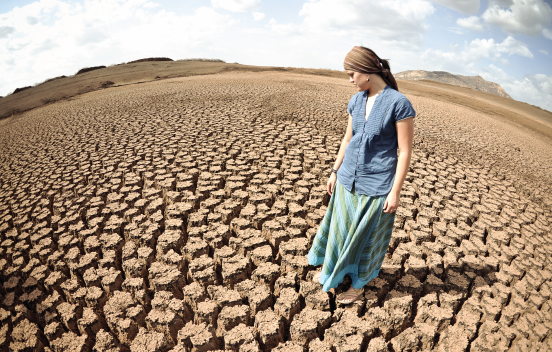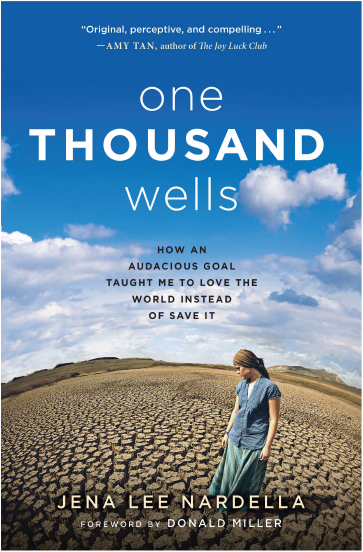Summary
Jena’s sense of defeat continues as she faces more brokenness in the world, and she starts to question if justice is really worth fighting for. As she begins to look for a way to step out of Blood:Water, thinking she can no longer fight against the intense brokenness of this world, her husband, James, accepts a job as the executive director of the Lwala clinic, further connecting her to Africa.
As the clinic takes off, Brooke, a UCLA college student who is dearly loved by the people of Lwala, is killed in a bus crash going from Kenya to Tanzania. This tragedy causes Jena to recall Steve Garber’s challenge to her: “To know the world and love it still.” But as she travels home, she questions whether she can love the world in all its doubt and darkness.
Back in the U.S., Jena admits her loss of hope to Steve Garber, who encourages her to choose “proximate mercy”–to look at the world and enter in being honest about its brokenness, knowing that some justice is better than no justice; to know that no matter how hard you try, you will not be able to achieve all you set out to in the world, but to still choose to live by hope despite the darkness. Jena begins to understand that when looking human depravity straight in the eye, it is difficult to press on, but that being on the winning team is not the destination; the destination is love, and we must seek love for love itself.
Despite the trials faced along the way, on May 10, 2011, all those who had been critical to the success of the 1000 Wells Project gathered at the Ryman Auditorium in Nashville to celebrate the realization of the dream. Jena recalls the collection of stories gathered in the room as one of the most beautiful pictures of community she had ever seen. She acknowledges that we are not called to change the world, but to love it, and that to love it, we are the ones who must change, because “the work of healing and redeeming a broken world belongs to God.” (253)
Powerful Lines
- “The greatest challenge is to attach yourself to the cares of the world and still keep going. To know the world and love it still.” – Steve Garber (229)
- True hope is always hard. It is not a passive wishing. It is an active exercise, a choice, an intention. Hope means giving up apathy and despair and instead embracing the uncertainty that terrifies you. It is the sacrifice of keeping your heart soft. (235)
- We don’t seek love so we can win. We seek love for love itself. (237)
- I have learned that truer triumph comes from the small than from the grandiose. (237)
- The faithful actions of loving one person at a time, working for justice one place at a time, providing water one village at a time–that is how we love the whole world. (238)
- We do believe that the world changes when we love it lavishly. We hold fast to the hope that someday all things will be renewed. (244)
- Vocation is a calling, an action, to be expressed wherever your feet are today. (245)
- But in its place is the beautiful realization that I do not need to climb any mountain alone. On my winding journey, God was there–in the form of friends who came alongside to share the load, through a set of values that served as a compass for all of us, and in the grace of clean water flowing through our hands. (254)
Questions to Ponder
-
- Jena explains philosopher Marton Buber’s writings on I-Thou and I-It relationships, saying that the I-Thou relationship occurs when two people see each other simply as people created by God in his image, seeing humanity and divinity within each person. The I-It relationship, however, occurs when a person sees the other as an object to be used to serve his or her interest.
- Jena explains that to romanticize Africa is to make an “it” of the place and people. In the context of her story and vocation with Africa, what do you think Jena means when she speaks of “romanticizing” Africa?
- Jena has brought up the concept of “being human with one another” throughout “One Thousand Wells.” Now that she explains that being human with one another is accomplished through the I-Thou relationship, how do you see this woven throughout the story of how Blood:Water came to be? Are there ways in which you see Blood:Water struggle through making this a reality?
- Steve Garber tells Jena that we must “know the world and love it still.” Especially being a Christian, it may be hard at times to love this world and pursue justice within it knowing the truth of its darkness and brokenness. Reflect on something in this world that you feel you may have lost hope in. Brainstorm how you can know the brokenness of that situation and love it still.
- Now that we have concluded “One Thousand Wells,” spend some time reflecting on two to three key ideas or things that you learned from the story Jena told. What struck you about them? How do these translate into your life?
- Jena explains philosopher Marton Buber’s writings on I-Thou and I-It relationships, saying that the I-Thou relationship occurs when two people see each other simply as people created by God in his image, seeing humanity and divinity within each person. The I-It relationship, however, occurs when a person sees the other as an object to be used to serve his or her interest.
Thank you for joining us in our reading of “One Thousand Wells”! It has been a joy to share Blood:Water’s journey with you. We hope you’ll join us for our next Blood:Water Book Club!

